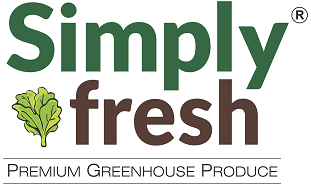Banning of Insecticides Order 2020 includes prohibits import, manufacture, sale, transport, distribution and use of such insecticides.
After announcing the agri-marketing reforms through the Atmanirbhar stimulus package, the government, in a surprise move, has proposed to ban 27 pesticides such as Carbendazim and Monocrotophos, which are widely used by the farmers across the country.
The Ministry of Agriculture and Farmers Welfare issued a draft order on Monday banning these 27 pesticides and has given 45 days for the industry and companies manufacturing such chemicals to file their objections, if any.
The draft order – called Banning of Insecticides Order 2020 – prohibits import, manufacture, sale, transport, distribution and use of such insecticides.
The pesticides in the proposed list are: Acephate, Atrazine, Benfuracarb, Butachlor, Captan, Carbofuran, Chlorpyriphos, 2,4-D, Deltamethrin, Dicofol, Dimethoate, Dinocap, Diuron, Malathion, Mancozeb, Methomyl, Oxyfluorfen, Pendimethalin, Quinalphos and Sulfosulfuron.
What does the draft order say?
The government has issued a draft order, proposing a ban on import, manufacturing, sale, transport and distribution of 27 insecticides. These insecticides have a material impact on the revenues of agrochemical companies under our coverage (CRIN, DAGRI, PI, RALI, UPLL) . The government has given 45 days to raise objections on the said draft. After 45 days and notification in the official gazette, state government will have to enforce the same.
Industry likely to appeal for a review
According to research report by Emkay Global Financial Services, industry participants and experts suggests that the industry will appeal for a review for most insecticides barring three, which fall under the red triangle category. The industry will not be able to make a case for red-triangle insecticides as they are hazardous. (Carbofuran, Methomyl and Monocrotophos)
Molecules banned for lack of data submission can be made good
Some molecules, which are banned for a lack of relevant data submissions and not banned by many countries, can be made good by following up with submissions. Eg. Mancozeb (incomplete data on thyroid profile on industrial workers, no bio-efficacy data submitted, etc.) and Pendimethalin (incomplete toxicity data submitted, no clarification on studies with respect to aquatic organisms, rice crop residue data not submitted, etc.). Hence, we believe that the industry would either submit the missing data or request for more time to submit the same.
Farm lobby may object as alternatives are expensive
As per Emkay Global Financial Services research report, alternative products for some of the molecules are expensive. In select cases, it is as high as 2x-3x of the outgoing molecule. Hence, farmers may object unless substitute products are available at affordable prices as improving realization to compensate for the increased cost is unlikely.
Final ban will be in phases spanning beyond 4 years
The report also mentioned that any ban on major molecules would be spread over a few years and will give the industry time to adjust. Also, the industry could appeal in courts against any proposed ban and go down the litigation route. For e.g. in 2011, India agreed to ban endosulfan at a Stockholm Convention meeting in Geneva and phase-out the chemical in 11 years. Eventually, it was phased out in 2017 after intervention from the Supreme Court.
Clarity on manufacturing for exports awaited
According to the report,the draft order proposes a ban on the manufacturing of these insecticides. Hence a plain reading suggests that companies would not be able to manufacture for exports as well. We believe that some of these molecules (Mancozeb, Pendimathalin, Acephate) are high in demand in export markets and hence, an exemption may be carved out for exports if banned for use in India.
Ban or no-ban, no immediate impact
As per the report by Emkay Global Financial Services, any ban would be phased out over a few years. Also, companies would be able to scale up alternatives to these molecules and one needs to wait for the strategy of each company to access the impact on revenue.
Banning of Insecticides Order 2020 includes prohibits














